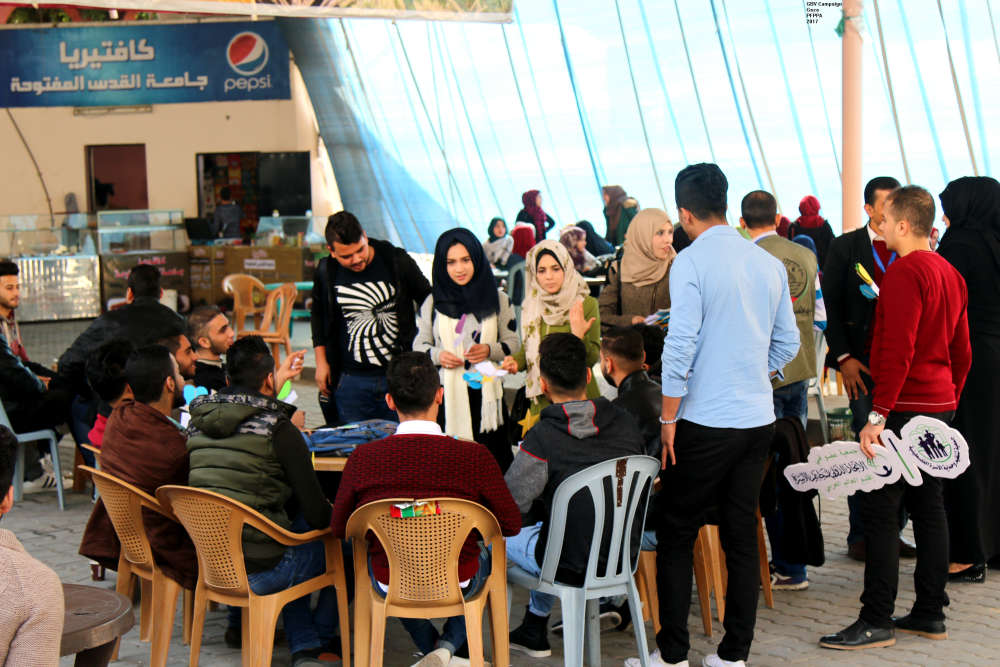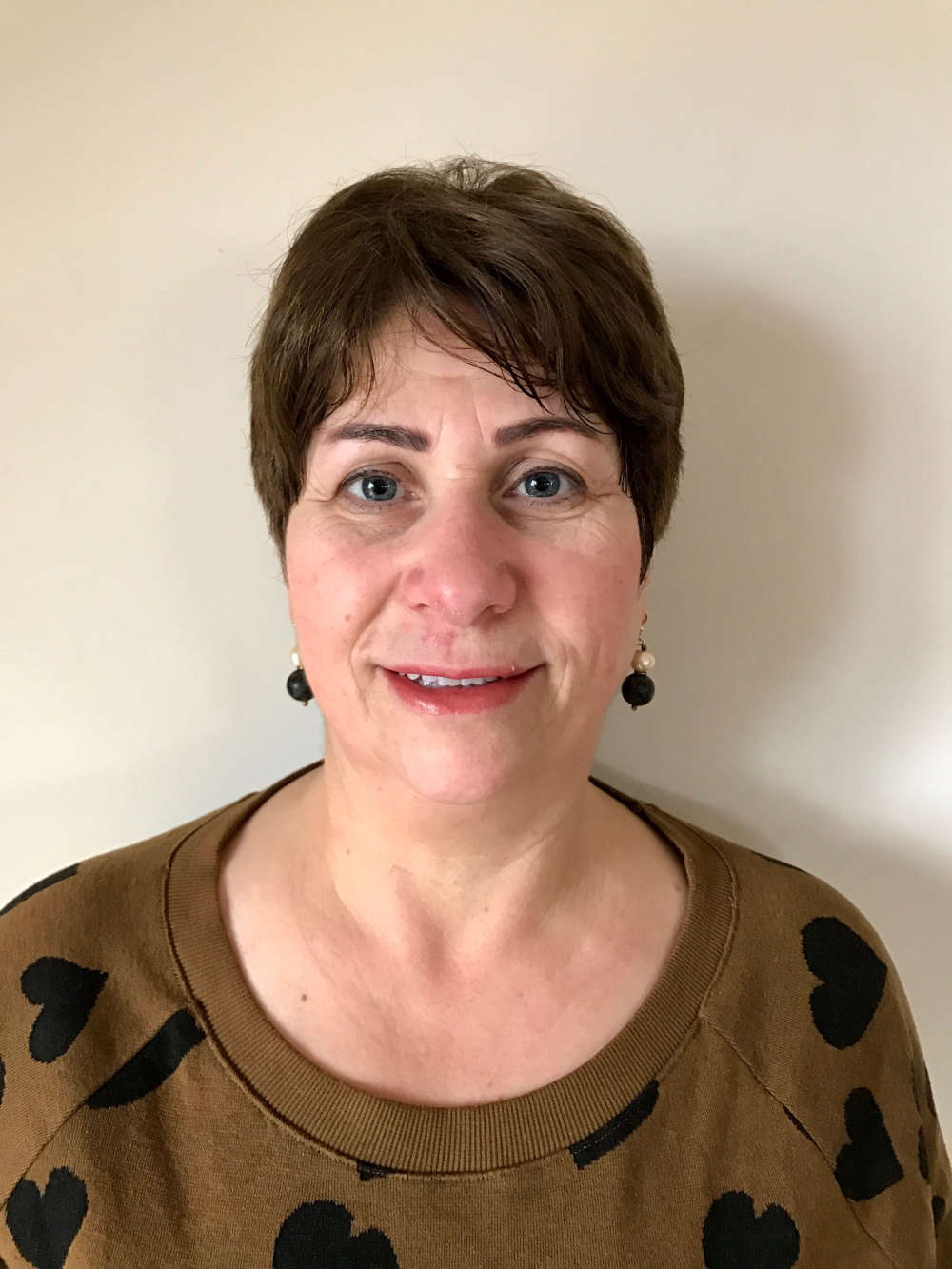As we are celebrating International Woman’s Day, we should remember that in Palestine, awareness of the importance of women’s full participation in public life must be increased. We must make sure that women’s voices are being heard when decisions are made and new policies developed, so as a society we can move ahead. For example, Palestine cannot continue to accept that its legislation is derived from outdated Ottoman and Jordanian laws – in many cases, these are indeed applied even today. Numerous laws that are relevant to women’s equality and regulate issues that range from violence against women, to divorce, inheritance, and more, have not been adopted or amended, even though such adaptations are required by international conventions Palestine has signed.
On March 8, we should look back at what we have achieved as women, both in Palestine and around the world, so we can learn from the past and strategize our future efforts. Our perseverance will pay off. We must continue to strive for being treated as equals, with the respect and dignity that we deserve and have worked hard for in all aspects of our communities, be it in the political, social, academic, or economic realms. Community change needs women, men, and youth to unite in order to achieve a society that respects equal rights. We all must work together to develop bold programs and endorse legislation that is implemented and monitored. In this way, we can reach our aim of creating a society that is governed by social justice and does not tolerate discrimination. To this end, the Palestinian Ministry of Women’s Affairs has issued the National Strategy to Combat Violence Against Women 2011-2019i with the foremost objective to promote the rule of law, based on women’s rights, and to improve institutional mechanisms in Palestinian society that protect and support abused women and enable them to live fulfilling lives.

We have reached technological advancement in Palestine; yet, sexual violence is an existing social phenomenon. The women who have been violated rarely share what they have experienced, because they fear the reaction of the perpetrators and social stigma. Unofficial and limited-in-scope statistics indicate that domestic violence against women has increased in recent years. Numerous community organizations, including the Palestinian Family Planning and Protection Association (PFPPA) are engaged in work that aims to lower the percentage of women who are being violated.
Another important aspect that must be considered when assessing the status of women is the role of education. In Palestinian communities, equal education has hardly been achieved. Research carried out by the Palestinian Central Bureau of Statistics and the UN reveals an increased drop-out rate among girls and young women,ii while those who pursue studies towards a degree tend to remain confined to the fields that are socially-accepted for women. Moreover, Palestinian women face difficulties when wishing to embark on a career, as frequently their options are limited to office-support and administrative positions such as clerk typists, secretaries, and administrative assistants. Employers who engaged in unfair hiring practices attempt to justify their discriminatory hiring decisions by claiming that women lack the skills and qualifications necessary to perform non-traditional and higher-paid positions – without further proof of their claims. Such mental and social violence against women remains largely hidden. Prevailing discrimination is reflected, however, in the available job opportunities and the number of decision-making positions available to women, both in business organizations and in the various sectors of civil society and government.

Discrimination exists as well in the enforcement of rules and regulations, which all too often is clearly biased in favor of men. All these faces of violence must be dealt with in order to build a healthy and productive society.
One important step in this direction is to take action against early marriage.
One of the aims of the PFPPA is to work to this end in cooperation with civil community organizations. On March 8, we will target various agencies with the aim of persuading them to assure that relevant laws are enforced by the year 2019. The Palestinian Authority has signed on to the Convention to Eliminate All Forms of Discrimination Against Women (CEDAW) in 1997.

Elimination of Violence Against Women on December 12, 2017.
More than two decades later, early marriage is still an existing phenomenon. Early marriage violates the rights of girls; it frequently puts an end to their schooling, and entails forced sexual relations and early childbearing. Moreover, girls who marry at a younger age are generally more vulnerable to spousal violence than girls who wait longer to marry. Child marriage tends to perpetuate a cycle of poverty, low education, high fertility, and poor health, which hinders the economic and social development of a society. Laws that set a minimum age for marriage are an important way to avert that boys and girls are being married before they are ready. It is important that children are recognized in the law as being children, and that they are accorded full protection.
The Palestinian government musts issue and enforce clear and consistent legislation that establishes the age of 18 years as the minimum age for marriage. Adequate safeguards must be put in place to ensure that parental consent or other exceptions may not be used to force girls into early marriage. Such laws serve as an important tool to help those working to dissuade families and communities from marrying off their daughters as children. They provide an objective, rather than subjective standard of maturity, which safeguards children from being married when they are neither physically, nor mentally or emotionally ready. Why should children be allowed to marry at an age at which, for example, they do not have the right to vote or to enter into other contracts recognized by law? Setting a minimum age for marriage will also help ensure that children are able to give their free and full consent to marriage, as they will make this important decision when they have the required minimum level of maturity. In this way, we will grant both girls and boys their right to obtain a full education and the opportunity to build a stable atmosphere, before they embark on their life journey.
We should be able to celebrate each year on March 8 that women have obtained their full rights and the freedom of taking their own decisions. Constituting the half of the society who brought the other half into life, women have the responsibly to help lead society towards a more humane level. We have tried relying on men’s sole leadership – and have failed miserably.
Aisha Saifi is a program director at the Palestinian Family Planning and Protection Association PFPPA in Ramallah.
Article photos courtesy of PFPPA.
The Representative Office of Norway to the Palestinian Authority is a partner to the Palestinian Family Planning and Protection Association.
i Palestinian National Committee to Combat Violence Against Women, National Strategy to Combat Violence Against Women 2011-2019, Palestinian Ministry of Women’s Affairs, available at http://www.lacs.ps/documentsShow.aspx?ATT_ID=5501
ii Development for Empowerment, The 2014 Human Development Report: Education, available at http://www.ps.undp.org/content/dam/papp/docs/Publications/UNDP-papp-research-PHDR2015Education.pdf; and Press Release on the International Youth Day, August 12, 2017, Palestinian Central Bureau of Statistics, available at http://www.pcbs.gov.ps/portals/_pcbs/PressRelease/Press_En_10-8-2017-youth-en.pdf.



